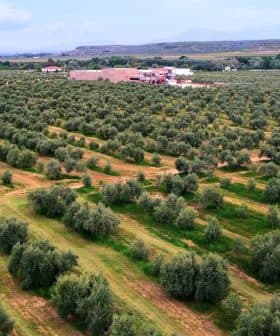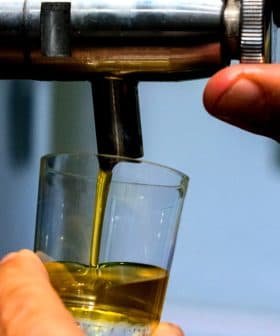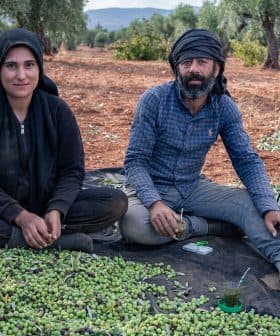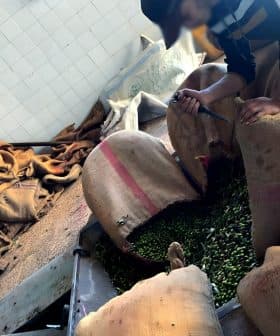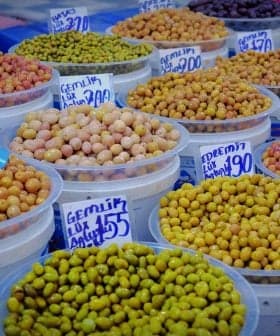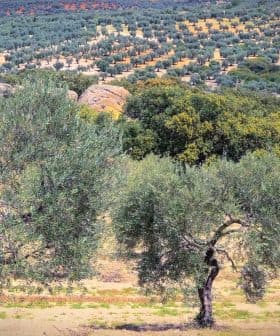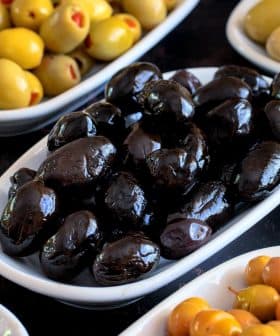35,000 Tons of Stolen Syrian Olive Oil May Already Be in Europe
This figure represents about half of the olive oil that has reportedly smuggled out from Afrin. A new pro-Turkish ally in the occupied Syrian territory denies the oil "was stolen" at all.
German broadcaster Deutsche Welle and the Turkish Radio and Television Corporation reported that at least 10,000 tons of stolen Syrian olive oil, blended with Turkish oil, may have entered Spain over the past 10 months. Spanish officials deny any knowledge of Turkish olive oil imports, while Turkish officials acknowledge confiscation of olive oil from Syria.
At least 10,000 tons of stolen Syrian olive oil may already be in Spain, according to a report from German broadcaster Deutsche Welle and data published by the Turkish Radio and Television Corporation, a state-run media entity.
Both outlets also reported that shipments of the olive oil, which has been purportedly blended with Turkish oil in cities across the border from Syria then exported to Europe, have been entering Spain for the past 10 months.
Both officials have not explained yet how the oil was bought at a price of 16.50 Turkish lira, while it is being sold at 20 to 25 Turksih lira in Turkey
“In the last 10 months Turkey has exported 37 percent of its production to Spain, which is approximately 40,000 tons,” Deutsche Welle said on its Arabic-language new website, citing figures provided by the Turkish Radio and Television Corporation. “But a quarter of this production comes from the Kurdish [Syrian] region of Afrin.”
In its most recent report, which runs until October 2018, the Spanish government’s customs agency said it was not aware of any Turkish olive oil imports entering the country. No Spanish companies have been accused of any wrongdoing and many deny importing olive oil from Turkey at all.
See Also:Spanish Senators Demand Investigation of Turkish ImportsNeither Deutsche Welle nor the Turkish Radio and Television Corporation responded to requests for comment from Olive Oil Times. The Aegean Exporters Association has also denied that any stolen Syrian olive oil is being exported from Turkey.
Turkey’s Minister of Agriculture, Bekir Pakdemirli, on the other hand, has publicly acknowledged that olive oil was confiscated from Syria, but did not say what became of it.
However, another 25,000 tons of the reportedly stolen and blended Syrian olive oil may also have found its way onto the island of Cyprus, according to an investigation by the Cyprus Post. Cyprus is located slightly more than 60 miles south of Turkey.
Vatan Mehmet, the investigative journalist who wrote the article, told Olive Oil Times that he became aware of the story when a local producers association, Zeysan, complained about a recent influx of severely underpriced olive oil.
At the time of the imports, Turkish olive oil was selling for about 20 to 25 Turkish lira per liter (about $3.76 to $4.70) on the island. However, the most recent shipment was selling for 16.50 Turkish lira per liter ($3.10).
Both Cyprus’ Agriculture Minister Erkut Sahali and the head of the organization that imported the oil, Hurrem Tulga, denied that the oil was from Syria. However, neither one could answer why the prices of the imported oil were so low and refused to comment further when pressed by Memet.
“Both officials have not explained yet how the oil was bought at a price of 16.50 Turkish lira while it is being sold at 20 to 25 Turkish lira in Turkey,” Memet said. “The officials kept their ambiguous tone regarding the amount to be imported, or the planned amount to be imported from now on.”
Neither Sahali nor Tulga responded to requests for comment from Olive Oil Times.
Meanwhile, Nasir Hussu, the head of the Turkish-backed Afrin Chamber of Industry and Trade, told local reporters at a press conference that no olive oil has been stolen from Afrin at all.
“We sold our olive oil to the Turkish traders at world prices, mostly, the Spain-based price,” Hussu said. “We totally reject these claims [that any olive oil was stolen from Afrin].”
Hussu’s insistence that local producers have been paid market prices for their olives comes in the face of considerable evidence to the contrary, ranging from eye-witness reports from the Syrian Observatory for Human Rights and other local sources to the aforementioned admissions from Pakdemirli.
Separately, both Spanish and Swiss politicians are pressing their governments and the European Commission to further investigate what is going on.
Bernard Guhl, a Swiss Member of Parliament, told Olive Oil Times that he expects answers from his government about whether any olive oil originating from Afrin has entered Switzerland sometime in March.
Carles Mulet García and Jordi Navarrete Pla, two Spanish senators, have also formally asked their government and the European Commission to investigate Turkish olive oil exports to the European Union. Neither entity has publicly stated that they are currently investigating the issue.


